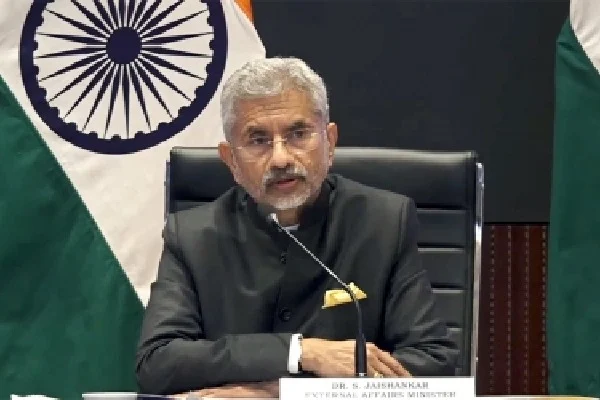Former Indian Navy sailor Ragesh Gopakumar recently recounted the harrowing experience of being sentenced to death in Qatar over espionage charges and the subsequent intervention by Union Minister S Jaishankar that led to their release. In an interview with the Indian Express, Gopakumar revealed that Jaishankar had personally called the wives of the eight former Navy officers sentenced to death in Qatar and assured them of their husbands’ safe return to India.
Gopakumar shared details of the conversation between the wives and the Union minister, recounting Jaishankar’s pledge to bring back the men. He emphasized that Jaishankar’s intervention provided hope to their families during a tumultuous time.
Having retired from the Indian Navy in 2017, Gopakumar had joined an Oman Defence training company as a communications instructor. Residing in Balaramapuram, Kerala, Gopakumar expressed relief and gratitude upon returning home, highlighting the trauma of imprisonment and the importance of their military training in surviving the ordeal.
The Ministry of External Affairs announced on February 12 that Qatar had dropped the death sentences against the eight former Indian Navy officers, attributing the decision to the Qatari emir. In December, Qatar’s Court of Appeal commuted the death sentences to varying prison terms ranging from three to 25 years.
The men, accused of spying for Israel, faced uncertain futures until their sentences were commuted. However, neither India nor Qatar confirmed the espionage charges. The intervention by Prime Minister Narendra Modi and the Indian government, coupled with diplomatic efforts, ultimately led to their release.
Expressing gratitude towards PM Modi and the Indian government, the released Navy veterans credited Modi’s personal intervention and the continuous efforts of the government for their safe return to India. They expressed deep appreciation for the support and assistance provided during their challenging ordeal.
The return of the former Navy officers marks the end of a protracted legal battle and a period of uncertainty for their families. Their story underscores the importance of diplomatic interventions and international cooperation in safeguarding the rights and interests of citizens abroad.
As they begin to rebuild their lives in India, the released veterans are grateful for the opportunity to reunite with their loved ones and resume their civilian lives. Their ordeal serves as a reminder of the challenges faced by individuals caught up in legal disputes abroad and the critical role played by diplomatic channels in securing their freedom and ensuring justice.
